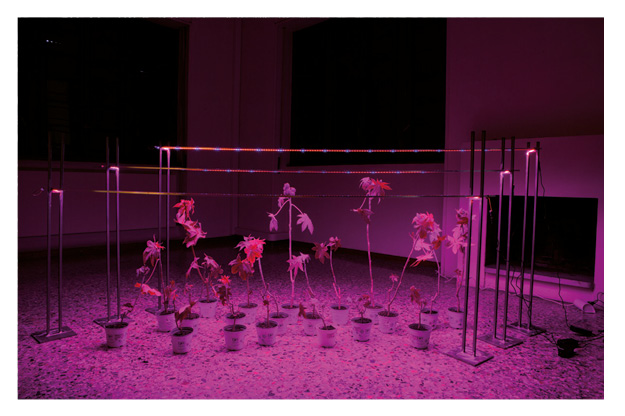Jacopo Rinaldi
Jacopo Rinaldi transforms the great hall in Casa Testori into a green house full of little tropical plants. The installation may be interpreted in a number of ways which go beyond what at first sight appears to be simple botanical interest. The first level of interpretation has to do with the title of the work, Maradagàl: the name of the imaginary town in which Carlo Emilio Gadda sets his novel La cognizione del dolore (The experience of pain), 1963. Maradagàl is an imaginary place, but it is also a fictitious reconstruction of Brianza under fascist rule in the nineteen-twenties, and a sharp criticism of Italy’s indolent bourgeois society of the time. In these terms, the plants Rinaldi has selected are an ironic comment and criticism of the bourgeois dimension of the Milanese culture in which Testori himself was born. And the inclusion of a tropical plant in the home, as Penny Sparke points out, is itself a colonial decorative act, originating in Victorian England, legitimising the exotic, aspirational dimension of bourgeois–modernist culture.
But there is, in the simplicity of this action, another level on which the work may be read: the tropical plants allude much more specifically to Italian history and relate to Gadda’s story, the fascist years and the country’s colonial past, in an intimate way, because the plants in the exhibition are of the species Ricinus Communis, commonly known as the castor oil plant.


